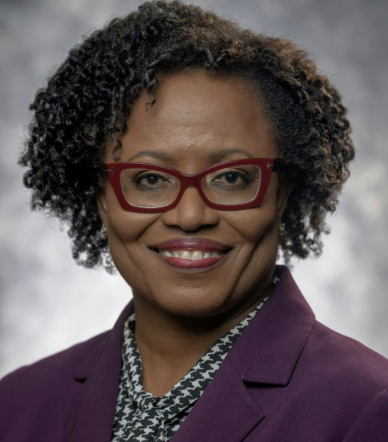
FROM MAGGIE SNYDER, PROJECT MANAGER
April 2024
Maggie Snyder serves as a consultant at Asset Funders Network. In this role, she focuses on developing strategies and programming focused on higher education.
In an ideal world, every person, regardless of race, gender, immigration status, or educational background, can pursue and complete their desired education, embark on the career they want, be fairly and adequately compensated for their work, and build wealth for their future and family. Unfortunately, this is not our current reality due to longstanding systemic inequities and injustices.
AFN knows philanthropy has a more important role than ever in increasing equitable opportunities to access and complete postsecondary education. We are refocusing our attention on the issue to illuminate the connection between investments in education and other asset-building strategies and to invite more grantmakers into the equitable wealth-building tent. Our goal is that AFN informs and supports an expanding network of funders investing in postsecondary education.
Starting this year, AFN will direct its education efforts to informing, connecting, and influencing grantmakers to build impact through investments that support opportunities for low/no debt postsecondary education (inclusive of career and technical education), credential completion activities, and just-in-time scholarships and grants to cover immediate student needs. Or in short, Credentials without Debt. It is a simple message with wide-ranging investment opportunities for funders who approach the issue from different viewpoints.
Looking at education through a value-based, asset-building lens signifies a departure. Instead of assigning blame or perpetuating labels onto communities that historically have been excluded from or minimized in interactions with traditional postsecondary education, the AFN lens is one of collective introspection, prompting us to scrutinize our values, history, institutions, and policies to ensure outcomes reflecting inclusivity and economic progress for all communities. Fundamentally, this lens requires reframing even as it acknowledges that the path to family-sustaining wages is far from linear, demanding a nuanced and adaptable approach.
This paradigm shift challenges funders to wield their influence with profound agency, empowering communities and a workforce that is increasingly diverse, complex, and skills-based. It calls for providing resources that are not only relevant but also timely, aimed at impacting postsecondary attainment immediately and facilitating access to promising careers now. An integral aspect of this evolution is the validation and investment in a myriad of career pathways, including initiatives at local community colleges that empower learners to acquire short-term, low-cost credentials aligned with the swiftly evolving demands of the workforce in collaboration with local and national employers.
Kesa Jessup, of the Winston-Salem Foundation emphasizes that this approach aligns closely with their foundation’s ongoing efforts. “This resonates deeply because we remain steadfast in our commitment to centering local community needs, promoting equity in access and resources, advocating for change, fostering network building, and cultivating synergy around empowering families through a range of asset-based funding opportunities.”
AFN and our members have long seen the intersections among educational opportunity, worker resilience, economic mobility, and equitable wealth building. Most of our work in this area focuses on exploring how funders understand, and make investments to, remove barriers and reduce existing student loan debt, as well as cultivate the growth of early savings mechanisms for postsecondary education, such as children’s savings accounts or baby bonds.
Kevin Almasy, manager at Dell Scholars Retention & Alumni, demonstrates this commitment to seeing scholars excel through earning a four-year college degree and doing so with as little debt as possible: “This starts on day one by intentionally working with all scholars during the spring of their senior year of high school on their college decisions, focusing on unmet needs and affordability. Historically, we know that debt directly correlates to degree completion. It’s no surprise that by decreasing college debt, we increase both college success and the long-term financial health of our scholars.”
The rearticulated AFN issue will launch at our conference on April 18 at AFN’s Conference, Centering Economic Equity: The Power of Intentionality. One session, Degrees without Debt, will focus on one component of this refined vision for the education issue – student debt, its wide-ranging equity implications and how funders with different strategies and viewpoints can address it.
Also launching this year will be our Innovations and Insights midday speaker series which are short presentations of ideas, policies, research, or investment models, translated for a philanthropic audience. The first few topics will focus on the education issue area, especially on sharing what research says works to support diverse learners, and how philanthropy can help spread these best practices.
We look forward to working with AFN members and leading practitioners to showcase the connectivity between post-secondary education and asset building, reducing debt, improving college completion outcomes, and building wealth equitably.


